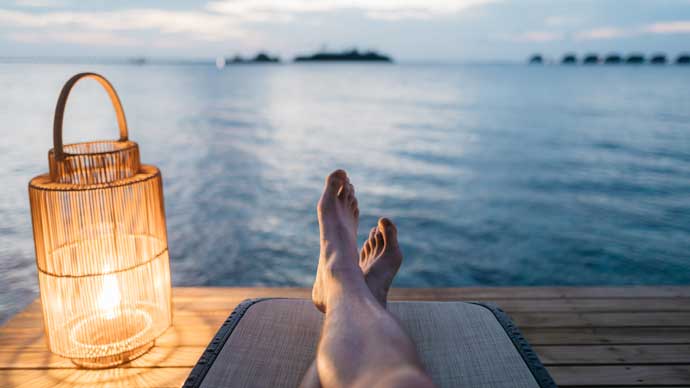What’s micro-resilience and how can it help you minimize the impacts of daily stress?
Let’s think of micro-resilience this way: What’s the normal way you live your life?
- Do you power through your emotions, fatigue and stress?
- Do you end up collapsing at the end of the day?
- Do you believe in pushing yourself to prove yourself and validate your self-worth?
The pushing through and feeling completely “spent” can lead to us feeling like it’s too big a hole to climb out of. We feel completely deflated and don’t know how to come back. Thus, we remain stuck in this vicious cycle.
Inevitably, our bodies start screaming for quick ways to feel better thus we reach for the glass of wine or comfort food despite not being truly hungry or thirsty. This is a very normal and natural response from the body. It wants to find the quickest way to feel better but these quick fixes don’t help our resilience, they’re just mental bandaids.
But what if we never reached this point and, instead, built in ways to micro-recover throughout our everyday lives?
All of this pushing through is super stressful to the body. It takes a long time for our bodies to bounce back from this prolonged, chronic, low-level stress. If we practice self-care, we may be focusing only on the bigger things (like weeklong tropical vacations, sleeping late on Saturdays, etc.) to recover and bounce back or give back to our minds and bodies.
Micro-resilience is about recharging your batteries while living your daily life.
It’s about weaving small recoveries into your daily routine. Instead of pushing through and needing to take serious downtime to recover, I’m encouraging you to incorporate small moments of relaxation in your daily life so you’re not so depleted by the end of your day and week.
7 Micro-resilience tips to break the chronic stress cycle:
- Taking a 5-10 minute walk outside during your afternoon break to clear your head (and leave your phone behind)
- Closing your office door to meditate for 5 minutes
- Diffusing calming essential oils like lavender at your home or office
- Eating lunch without distraction. Yes, do nothing but eat. Instead of answering emails while eating, use the time to relax and clear your mind. Did you know that “multi-tasking can effectively lower your IQ and make things take up to four times as long to accomplish?” (Source)
- Standing in Amy Cuddy’s power pose. Harvard found that “…whether you are sitting or standing – opening up your arms, spreading your feet apart, and extending your posture, reduces cortisol (the fear hormone) and increases testosterone (giving more confidence to take risks). Once your body chemistry shifts from fearfulness to confidence, you can be more resilient about how you respond to what is happening around you.” (Source)
- Create an emotional first-aid kit that you can tap into when you need a boost. Collect items – mementos, pictures, or pieces of music – that can trigger positive feelings and help you conquer negativity. Personally, I have notes of appreciation from clients posted and a picture of my dog that says “Make Time For Play” in my office. Taking a moment to “soak them in” can give me the boost I need to change my mindset. (Source)
- Stop skipping meals or pushing past your typical meal times. To be and feel our best, our bodies thrive when they receive steady nourishment (energy) throughout our day.
The options are endless and very personal to each individual. The book The Sweet Spot by Christine Carter Ph.D. has lots of great ideas and information about building micro-resilience. Once you find a few easy recovery methods that work for you, you’ll notice what a difference it makes in your day.
Want to learn more? Check out Dr. Jim’s scientific research with elite tennis players and how micro-resilience habits during a long tennis match were able to bring their heart rates down to an ideal more quickly and perform overall better. We can apply this same habit to our everyday lives.
Let’s recharge our batteries along the way so we can be and feel our best, all day, every day.
- Tanya


